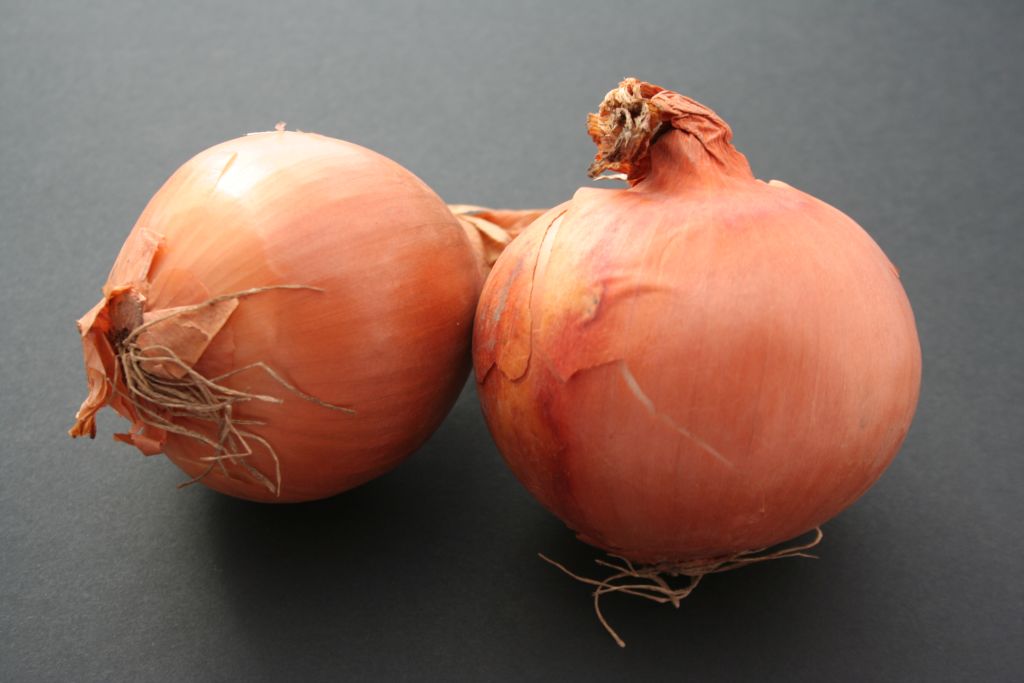Onion

Image copyright jonsay.co.uk
When you cut an onion, enzymes start to break down the cell structure and a vapour containing sulphur compounds that are inert start to rise. Once it gets to your eyes the compound mixes with the natural moisture that our eyes produce and creates sulphuric acid.
Due to the vapour, aroma and taste many cultures have considered the onion to be of great medicinal use. While onions are certainly part of a healthy diet unfortunately they do not help with infertility, as an aphrodisiac or indeed cure any ills as those cultures believed but they do add exceptional taste to cooked dishes.
Onions are very good vegetables to eat and contain many minerals and vitamins essential to a healthy life.
Nutritional Information 100g of an average Onions:-
| Calories | 40 kcal |
| Carbohydrates | 9.3g |
| Protein | 1.1g |
| Fat | 0.1g |
| Fibre | 1.7g |
The world largest producer of Onions is China followed by India, the U.S. and turkey. More than 73 million tonnes of onions are produced each year.
| Onion in other languages:- |
| Cebuano: | sibuyas |
| Chinese: | yángcōng 洋葱 |
| French: | m oignon |
| German: | f zwiebel |
| Greek: | n κρεμμύδι |
| Indonesian: | bawang putih |
| Italian: | f cipolla |
| Japanese: | tamanegi タマネギ |
| Nederlands: | c ui |
| Norwegian: | m løk |
| Polish: | f cebula |
| Portuguese: | f cebola |
| Spanish: | f cebolla |
| Swedish: | c lök |
| Tagalog: | sibuyas |
| Turkish: | soğan |